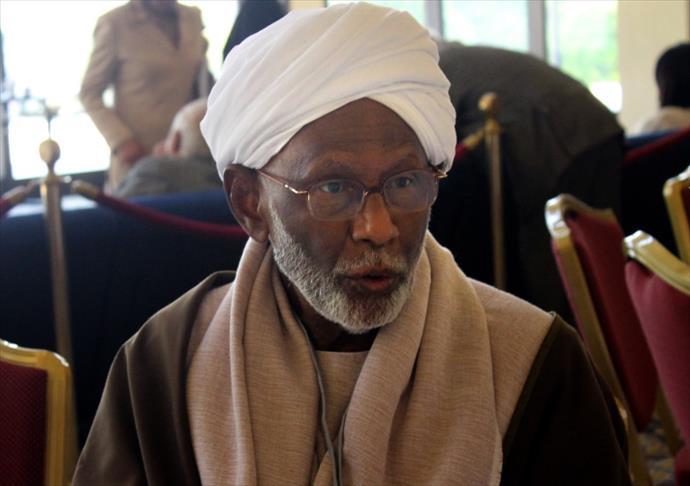Sudan's transition differs from other Arab countries, Sudan's opposition leader
Veteran Sudanese intellectual and opposition leader, Hassan Al-Turabi has said that they had been trying hard for a smooth and peaceful transition in Sudan and all the dissident groups in the country were agreed on that.

Hasan el-Turabi told AA correspondent on Monday that the crisis in Sudan was not only political. He said that there was no freedom and equality, and poverty was at the highest levels. "Sudan was facing a threat of dismemberment," said Turabi adding that they did not have the notion of being a nation.
He said that the division of South Sudan and Sudan was not that deep and concrete, and added that dividing the people of two sides was almost impossible because they were like a family. He said that it was very possible for two countries to reunite soon.
-Turkey and Arab world-
Turabi said that Turkey started reinvolving with Arab countries after Turkish Prime Minister Recep Tayyip Erdogan came to power.
Saying that the West was concerned about the awakening in the Middle East that could lead to a union, Turabi said that the West did not want democracy in the Middle East and did not want Turkey to join that family union as a longlost sibling.
Replying a question on Turkey-Syria relations, he said that he did not expect a war to start and Bashar Al Assad regime would leave Syria eventually.
Hasan Abdullah el-Turabi is the longtime leader of the National Islamic Front in Sudan, dating back to when the organization was a fledgling offshoot of the Egyptian Muslim Brotherhood in the 1960s. Since the mid-1970s he has served in various government positions including Attorney General under President Numayri and Speaker of the Assembly in Parliament. From 1989 until 2001 he was the unofficial power behind the Sudanese government as leader of the NIF, its ruling party. Since 2000, he has been increasingly held in disfavor by other Sudanese Islamists for criticizing the policies of President Omar al-Bashir and espousing controversial Islamic opinions. Turabi was imprisoned by the Sudanese government in 2004 on charges of plotting a coup and released in 2005.
Reporting by Feyza Gumusluoglu
Anadolu Agency website contains only a portion of the news stories offered to subscribers in the AA News Broadcasting System (HAS), and in summarized form. Please contact us for subscription options.







